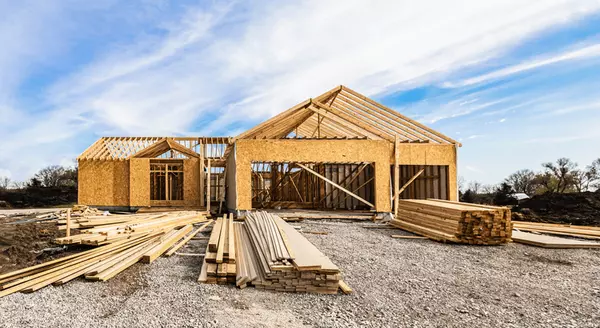Understanding Home Inspections: What Buyers Should Know
Understanding Home Inspections: What Buyers Should Know

A home inspection is a vital part of the homebuying process that ensures you’re making a sound investment. It helps uncover any issues with the property before finalizing the purchase, giving you the chance to negotiate repairs or adjust the price. To get the most out of a home inspection, here’s what buyers should know, along with 9 helpful tips to guide you through the process.
1. Why Home Inspections Are Important
A home inspection gives you a detailed overview of the home’s condition, from the foundation to the roof. It helps identify potential problems that could cost you down the line, giving you the power to make an informed decision.
Tip 1: Never Skip the Home Inspection
Even if a home looks perfect on the surface, unseen issues like faulty wiring or plumbing problems can exist. Skipping the inspection to save money could cost you more in expensive repairs later on.
2. What to Expect from a Home Inspection
During a home inspection, a professional inspector will evaluate the property’s major systems, including plumbing, electrical, HVAC, roofing, and foundation. They’ll provide you with a detailed report of their findings.

Tip 2: Ask for a Sample Report
Before hiring an inspector, ask for a sample report to see how detailed and easy to understand their assessments are. This will give you an idea of the thoroughness of their work and what to expect from the final report.
3. Choose the Right Home Inspector
Not all home inspectors are created equal. Choosing a certified, experienced inspector ensures you get a reliable assessment of the property’s condition. We recomend Pillar to Post, however you need to explore and interview a few.

Tip 3: Verify Credentials and Experience
Look for inspectors who are certified by a reputable organization, such as the American Society of Home Inspectors (ASHI) or the International Association of Certified Home Inspectors (InterNACHI). Also, check their experience and reviews.
4. Attend the Inspection
It’s a good idea to be present during the home inspection. While the inspector will provide a written report, seeing the issues firsthand will give you a clearer understanding of the property’s condition.
Tip 4: Prepare a List of Questions
Bring a list of any specific questions or concerns you have about the property. The inspector can address these during the walkthrough and help you understand the severity of any issues.
5. Common Issues Found in Inspections
Some of the most common issues found during home inspections include roof leaks, foundation cracks, faulty wiring, plumbing problems, and HVAC system issues. It’s important to know that not every issue is a dealbreaker, but some may require significant repairs.
Tip 5: Focus on Major Systems and Safety
While cosmetic issues like paint and landscaping can be easily fixed, prioritize any problems with major systems (like the foundation, plumbing, and electrical) and safety concerns, as these could lead to costly repairs.
6. Negotiating After the Inspection
If the home inspection reveals significant issues, you can use the report to negotiate with the seller. This may involve asking for repairs, requesting a credit at closing, or lowering the purchase price.
Tip 6: Be Reasonable with Your Requests
Don’t expect the seller to fix every minor issue. Focus your negotiations on major concerns that affect the safety or functionality of the home, and be prepared to compromise on smaller items.
7. Understand the Limits of a Home Inspection
Home inspections cover a lot, but they don’t assess everything. Inspectors may not check out-of-sight areas like inside walls or underground pipes. They also don’t assess cosmetic defects or provide estimates for repairs.
Tip 7: Consider Additional Inspections
Depending on the property, you may want to hire specialists for additional inspections, such as for mold, pests, or asbestos. This is especially important for older homes or homes in certain regions.
8. How to Use the Home Inspection Report
Once you receive the home inspection report, take the time to review it thoroughly. This document will give you a complete picture of the home’s condition and help you decide whether to move forward with the purchase, renegotiate, or walk away.
Tip 8: Consult with Your Real Estate Agent
Your real estate agent can help you interpret the inspection report and decide what issues should be addressed with the seller. They can also guide you on how to negotiate repairs or credits effectively.
9. Plan for Future Maintenance
Even if the home passes inspection with no major issues, every property requires ongoing maintenance. Use the inspection report to plan for future repairs and upkeep.
Tip 9: Budget for Maintenance Costs
Set aside a budget for regular home maintenance and potential future repairs, such as replacing the roof or updating an aging HVAC system. This will help you stay on top of home care and avoid costly surprises.
A home inspection is a crucial step in buying a home, giving you peace of mind and confidence in your investment. By following these steps and tips, you’ll be better prepared to handle the inspection process, negotiate repairs, and make a smart, informed decision about your future home.
Categories
- All Blogs (430)
- For Sale By Owner (15)
- Local Events (6)
- Affordability (24)
- Agent Value (86)
- Buying Tips (178)
- Design (8)
- Downsize (3)
- Economy (19)
- Equity (21)
- Financial Planning (32)
- First-Time Home Buyer (123)
- For Sale by Owner (2)
- Forecasts (13)
- Foreclosures (3)
- Fun Tips (5)
- Home Buying (217)
- Home Prices (55)
- Home Selling (157)
- Inventory (33)
- Local (24)
- Luxury / Vacation (1)
- Market Update (35)
- Mortgage (43)
- Move-Up (1)
- New Construction (5)
- Newsletter (8)
- Open House (1)
- Real Estate Investing (7)
- Rent vs Buy (8)
- Restaurant Reviews (5)
- Seasonal (11)
- selling tips (118)
- Technology (1)
- Teens & Young Adults (11)
- Trends (15)
- Wealth Building (12)
Recent Posts










